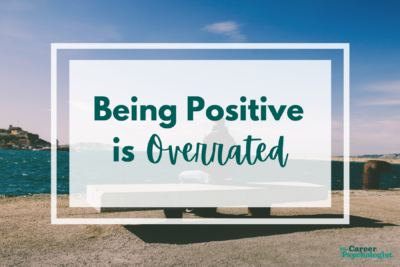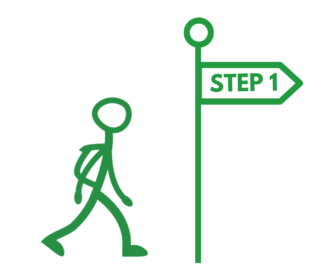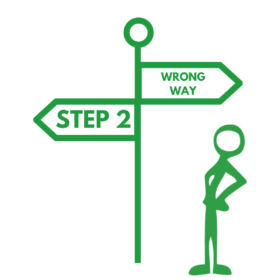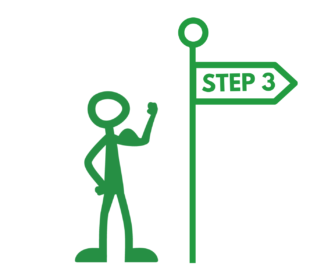
8th Feb 2021
Being Positive is Overrated!
This is perhaps a controversial thing to say, but hear us out…
Being positive is a great and important thing. But as with many things in life, we need to be careful about how we define the word ‘positive’ and how we use the idea in practice.
Let us explain…
One of the worst things we can do is define being positive as feeling positive or feeling like we need to feel positive thoughts and emotions. Our thoughts and feelings are beyond our control. Unfortunately for human beings how we feel is…how we feel.
Therefore, if you are having a sense of sadness at current events, of grief over the people and things we are missing, trepidation about the year ahead, fear for loved ones…then these are all normal reactions to a difficult situation.
If we regard our own thoughts and emotions as wrong, or in some way ‘negative’, then we make enemies of our own natural reactions. Trying to suppress or turn away from our difficult emotions is not healthy or helpful. Rather it undermines our ability to deal with the world as it is.
By turning away from our own difficult thoughts and emotions we create anxiety about anxiety. Fear about fear. Worry about our own sense of sadness. And this can create an extra layer of suffering which is often the basis for lower resilience and poor mental health.
So how then should we define positivity?
Whilst we can’t control our thoughts and emotions, we can choose instead to focus on the aspect of life we can control – our own response to adversity. In general this means our own actions and the choices we make every day.
For example, we have choices over how we respond to others, what information we consume and how often, when we go to bed, the amount we use social media and the way we speak to our loved ones.
Whilst we may not always be feeling positive, we still have daily choices over our routines, diet, levels of exercise and movement, what we focus on and prioritise, the things we make time for and the things we don’t.
So how can we become more positive?
Try these 3 steps…
 Step 1 – notice and label your emotions
Step 1 – notice and label your emotions
Instead of trying to force positive feelings, start by naming how you are actually feeling. Start by noticing your own thoughts and emotions and describing the emotion you are feeling. For example, ‘stressed’ could mean that you feel overwhelmed, or frustrated or tired.
Naming our emotions helps us to understand what’s really happening to us and builds our ‘readiness potential’ – our ability to set goals and make concrete changes.

Step 2 – identify what ‘positive’ looks like for you in terms of values and behaviours
We are all already choosing behaviours every day, we just may not be doing it consciously.
Yet with each of the choices you make today you will often find there are positive choices to be made. Often these can be quite small, but we are always in the business of marginal gains.
Often a good place to start is simply by noticing the behaviours that are already making a positive difference to your life. The start of a new year is a good time to ask yourself these two questions:
1. What did you do that was a positive behaviour last year?
This is highly individual, but here is an example of ours:
- Running twice every day
- Listening to podcasts whilst running
- Protecting sleep
- Giving myself something to look forward to with books, films, boxsets and podcasts.
- Protecting mealtimes with my family
2. Where do you think you could adjust / improve this year?
For us it would be:
- Less social media
- Push harder when running, run longer and more weights
- Eating a lighter lunch
- Clearer structure to working day / week
- More holidays / recovery built into year
We know if we can do some of these behaviours more often we will look back on this year not with happiness perhaps, but certainly a sense of pride.
 Step 3 – systemise the behaviour
Step 3 – systemise the behaviour
Mental health is not a complicated subject. Most of us know what we need to do. But unfortunately, knowing is not where the battle is won!
‘Doing is where the battle is won’
It is here that we need to remember not to trust our thoughts and emotions, which don’t always line up with our True North direction, and instead trust our systems and routines.
How could you systemise some of the positive behaviours you have identified in step 2?
How could you make them easier to do?
Think about creating routines that build positivity in your life automatically.
And remember, no matter how bad things get, you still have choices to make.
From now on, define positivity by the choices you make each day. You never know, positive feelings might even show up afterwards.
Tags: ACT in coaching, Behaviour change, Positive psychology, Psychology of career change, The Career Psychologist
Subscribe to the blog
What we’ve been writing about
The Getting Unstuck process steps
Latest Tweets
-
 A thought provoking read from our own Naomi de Barra about mobile phones and how they, in her experience, disrupted… https://t.co/4SzhT2lWj0
A thought provoking read from our own Naomi de Barra about mobile phones and how they, in her experience, disrupted… https://t.co/4SzhT2lWj0
-
 On #WorldMentalHealthDay , like every other day, take a moment to look after yourself and your wellness "If you d… https://t.co/326PA9fVYh
On #WorldMentalHealthDay , like every other day, take a moment to look after yourself and your wellness "If you d… https://t.co/326PA9fVYh
-
 We'd love to hear what books or items improve your mental health & wellbeing? Here are 3 of ours: 1. The Happine… https://t.co/mtXyNlg6nk
We'd love to hear what books or items improve your mental health & wellbeing? Here are 3 of ours: 1. The Happine… https://t.co/mtXyNlg6nk

